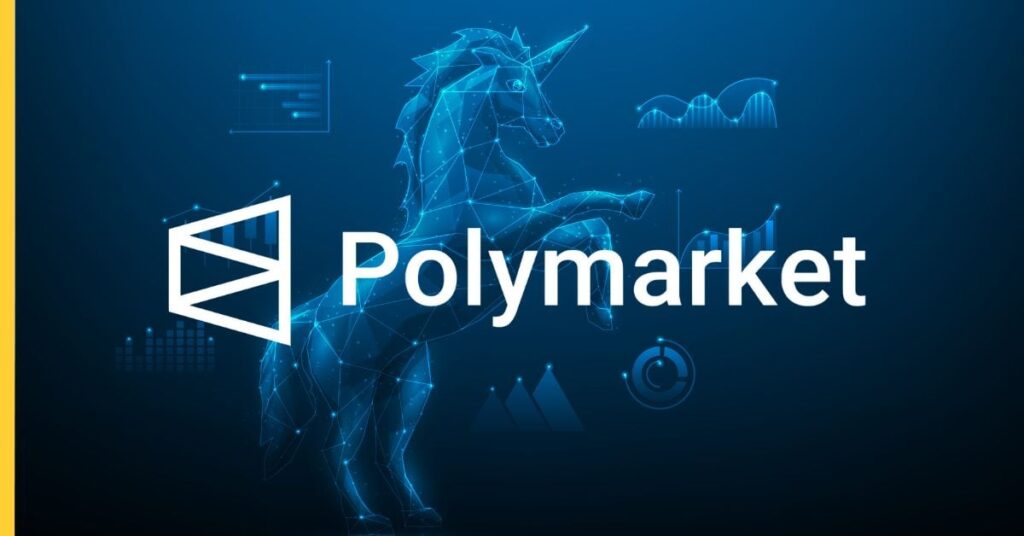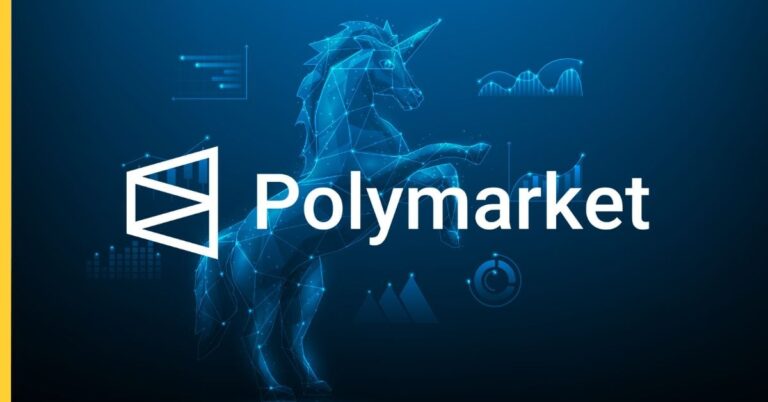
A Complete Legal Analysis of America’s Complex Relationship with Prediction Markets
The question of whether US citizens can legally bet on Polymarket has become increasingly relevant as prediction markets gain mainstream attention. The short answer is straightforward: Polymarket has blocked access to US customers since 2022, following a settlement with the Commodity Futures Trading Commission, making it officially illegal for Americans to use the platform. However, the reality is far more complex, involving regulatory enforcement challenges, technological workarounds, and an evolving legal landscape that may soon change dramatically.
The CFTC Settlement That Changed Everything
To understand Polymarket’s current status for US users, we must examine the pivotal 2022 regulatory action that reshaped the company’s operations. The CFTC ordered Polymarket to pay a $1.4 million civil monetary penalty and facilitate the wind down of all markets that do not comply with the Commodity Exchange Act and applicable CFTC regulations. This enforcement action fundamentally altered how the platform operates and who can access its services.
The CFTC’s primary concern centered on Polymarket’s classification of its betting pools as unregistered derivatives. Polymarket’s betting pools constituted binary options, according to the CFTC, which fall under strict federal regulations when offered to US residents. Binary options are financial instruments that pay out a fixed amount if certain conditions are met, or nothing at all if they are not – essentially the same mechanism used in Polymarket’s prediction markets.
The settlement required more than just financial penalties. As part of the settlement, Polymarket agreed to wind down existing noncompliant contracts and pay a $1.4 million civil penalty. More significantly for users, the company was forced to implement geographic restrictions that would prevent US residents from accessing the platform entirely.
Florida News and Press Releases:
• Senolytix Anti-Aging Care in Palm Beach County
• Catering in Boca Raton Florida
• American Football: The Greatest Show on Earth
• Florida Negligent Child Adoption Agency Law Firm
• Florida Law Firm Press Releases
The Technical Reality of US Access Restrictions
Following the CFTC settlement, Polymarket relaunched but U.S. residents will not be able to trade on the site. However, the technical implementation of these restrictions differs significantly from traditional gambling sites that employ extensive verification procedures. Polymarket is not available to U.S. users, though it’s not as restrictive as other online gambling apps like DraftKings and FanDuel, which run extensive KYC and location checks.
This technical difference has created a gray area that many US users have exploited. Unlike heavily regulated gambling platforms that require identity verification, bank account linking, and real-time location tracking, Polymarket’s decentralized nature and cryptocurrency-based operation make it more challenging to completely block US users. The platform primarily relies on IP address blocking and terms of service agreements rather than the comprehensive identity verification systems used by traditional gambling sites.
The ease of circumventing these restrictions has led to widespread violations of the platform’s terms of service. Many American users have discovered that simple VPN usage can bypass geographic restrictions, though doing so explicitly violates both Polymarket’s terms and potentially federal law. Polymarket betting is officially illegal for US citizens. You have to use a VPN to break the law, as one observer noted, highlighting the straightforward nature of this circumvention method.
The Scale of Unauthorized US Usage
Despite official restrictions, evidence suggests that substantial numbers of US citizens continue to use Polymarket. The surge includes new bets from Americans, according to interviews with US-based users who have recently placed wagers on the platform. This unauthorized usage became particularly pronounced during major political events, such as the 2024 presidential election, when American interest in prediction market outcomes reached unprecedented levels.
The platform’s popularity among US users has not gone unnoticed by regulators and the media. Polymarket’s popularity surged in 2024 as a place for traders to bet on the U.S. presidential election and other campaigns, but it hasn’t been allowed to operate here for several years. This disconnect between legal restrictions and actual usage patterns has created ongoing tension between the platform, its users, and regulatory authorities.
Polymarket itself has taken steps to address concerns about US user access, particularly when large bets attracted media attention. Polymarket is reportedly checking to ensure whales placing big bets on the United States presidential election are based overseas, as US users are banned from the platform. These efforts to verify user locations suggest that the company is aware of ongoing violations and is taking steps to address them, likely to avoid further regulatory scrutiny.
Recent Regulatory Scrutiny and FBI Involvement
The tension between legal restrictions and actual usage patterns reached a crescendo in late 2024 when federal authorities took direct action against Polymarket’s leadership. The FBI raided Polymarket and seized founder Shayne Coplan’s phone, criticizing the business for allegedly allowing US users access to the platform despite the 2022 settlement. This dramatic escalation demonstrated that regulators remain actively concerned about compliance with the original settlement terms.
The FBI raid highlighted the ongoing challenges in enforcing geographic restrictions on decentralized platforms. Even after the $1.4 million settlement and agreement to block U.S. users, regulators weren’t convinced the company had actually shut Americans out. This skepticism proved justified, as evidence of continued US user activity had become increasingly apparent through media coverage and trading pattern analysis.
The Path to Legal US Operations
Recent developments suggest that Polymarket’s exclusion from the US market may be temporary. Polymarket is set to return to the U.S. after an acquisition, with regulatory approval paving the way for U.S. users to access Polymarket in the near future. This potential return would represent a significant shift in the regulatory landscape for prediction markets in the United States.
The mechanism for Polymarket’s return involves regulatory compliance rather than legal changes. Polymarket’s CEO has indicated that the company has received CFTC green light to return to the US market, suggesting that a compliant operational structure may soon be in place. This development would potentially resolve the current legal ambiguity surrounding US user access.
Comparison with Legal US Prediction Markets
While Polymarket remains off-limits to US users, legal alternatives do exist within the American market. One of its biggest competitors, Kalshi, is CFTC regulated and is legal for American users. This comparison highlights the difference between compliant and non-compliant prediction market operations in the US regulatory environment.
The existence of legal alternatives underscores that prediction markets themselves are not prohibited in the United States – rather, the issue lies in proper regulatory compliance and registration. Kalshi’s success in obtaining CFTC approval demonstrates that prediction markets can operate legally within the US framework when properly structured and regulated.
Legal Risks for US Users
US citizens who currently use Polymarket through VPNs or other circumvention methods face potential legal consequences. While enforcement against individual users appears limited, the legal framework clearly prohibits such activities. Users who violate geographic restrictions may face both civil and criminal liability under federal financial regulations.
The risk extends beyond simple terms of service violations. Because Polymarket’s products are classified as derivatives under US law, unauthorized participation could potentially violate multiple federal statutes governing financial markets. These violations could carry significant penalties, though enforcement against individual users rather than the platform operator remains rare.
Additionally, US users face practical risks beyond legal consequences. Cryptocurrency transactions on prohibited platforms may complicate tax reporting obligations and could potentially be reversed or frozen if regulatory action escalates. Users also lack the consumer protections typically available in regulated markets, leaving them vulnerable to losses without legal recourse.
The Broader Regulatory Landscape
The Polymarket situation reflects broader tensions in US financial regulation regarding cryptocurrency and decentralized finance applications. Traditional regulatory frameworks struggle to address platforms that operate across borders using blockchain technology, creating enforcement challenges and legal ambiguities.
The prediction market industry specifically sits at the intersection of gambling regulation, financial derivatives oversight, and emerging technology policy. This intersection creates complex jurisdictional questions and regulatory gaps that platforms like Polymarket have historically exploited, though with increasing difficulty as enforcement intensifies.
Future Outlook and Implications
The potential return of Polymarket to US markets represents more than just one company’s compliance efforts – it signals broader regulatory acceptance of prediction markets as legitimate financial instruments. If Polymarket successfully re-enters the US market through proper regulatory channels, it could pave the way for broader adoption of prediction markets in American finance.
However, the path forward remains uncertain. Regulatory attitudes toward cryptocurrency-based platforms continue evolving, and political pressure regarding election-related betting could influence policy decisions. The success of Polymarket’s attempted return will likely depend on broader regulatory trends and political considerations beyond the company’s specific compliance efforts.
Currently, US citizens cannot legally bet on Polymarket due to the platform’s 2022 CFTC settlement and subsequent geographic restrictions. While technical workarounds exist, using them violates federal law and the platform’s terms of service, exposing users to potential legal and financial risks.
However, this situation may soon change as Polymarket works toward regulatory compliance that would enable legal US operations. Until that compliance is achieved and verified, American citizens should consider legal alternatives like Kalshi for prediction market participation, or wait for Polymarket’s potential authorized return to the US market.
The Polymarket situation illustrates the complex challenges facing both regulators and platforms in the rapidly evolving landscape of cryptocurrency-based financial services, highlighting the ongoing tension between innovation and regulatory compliance in American financial markets.



